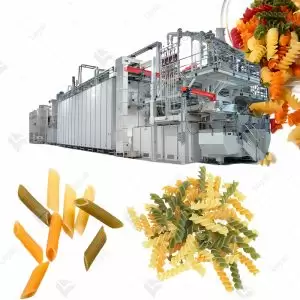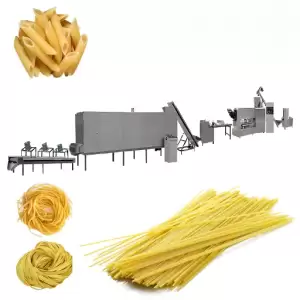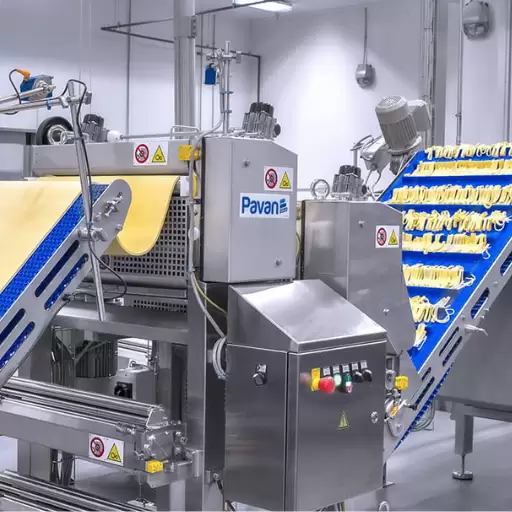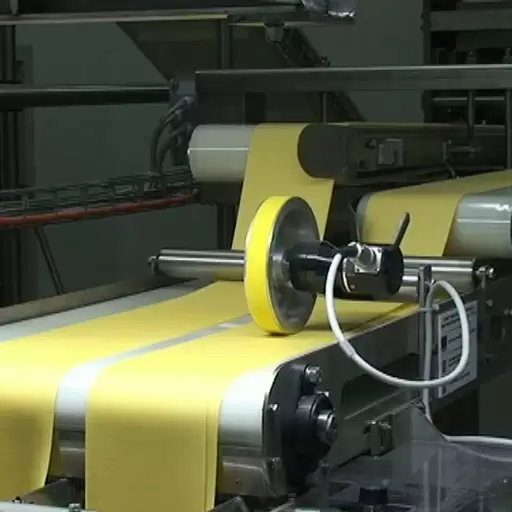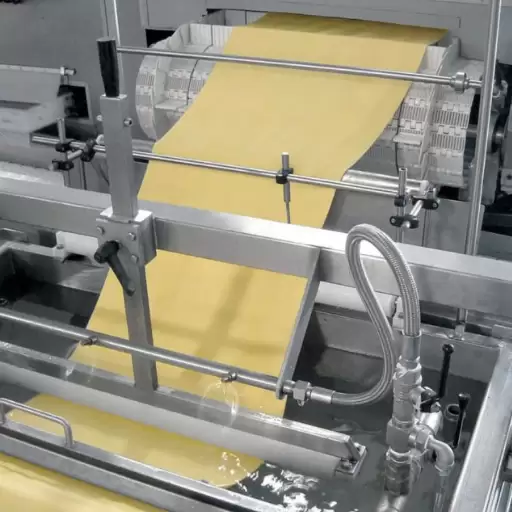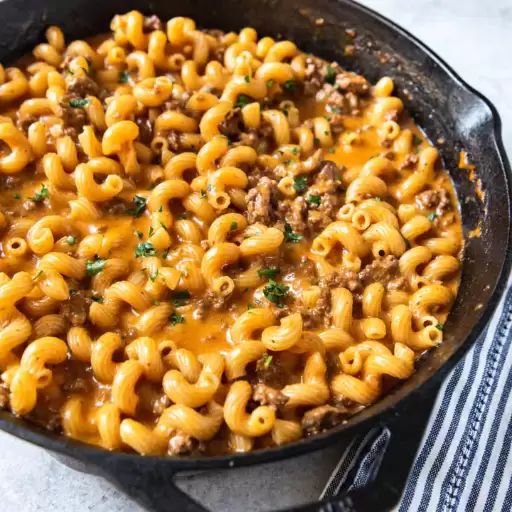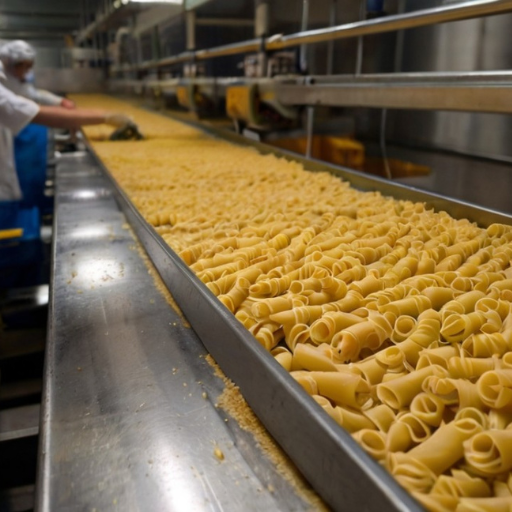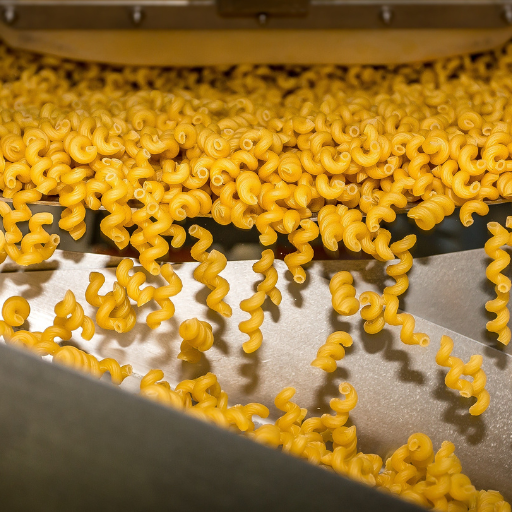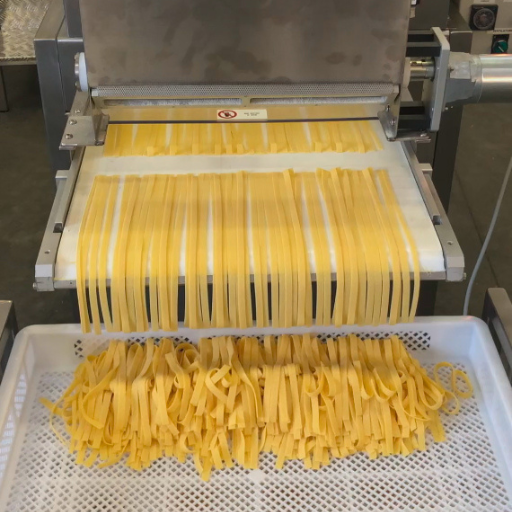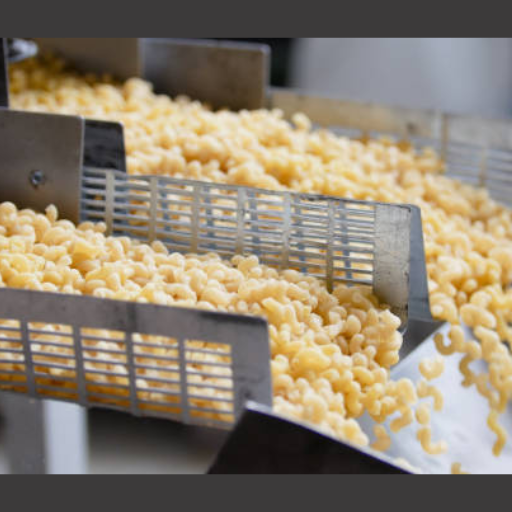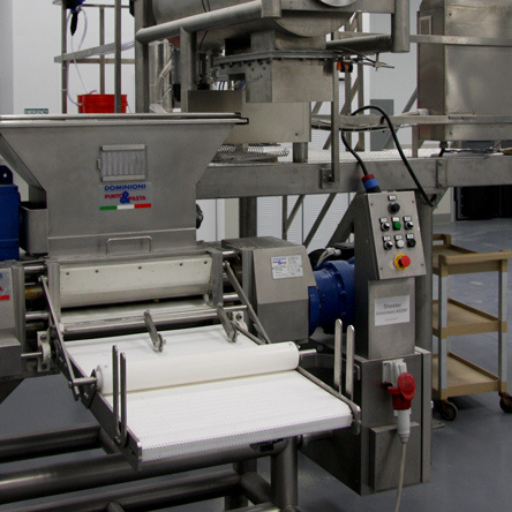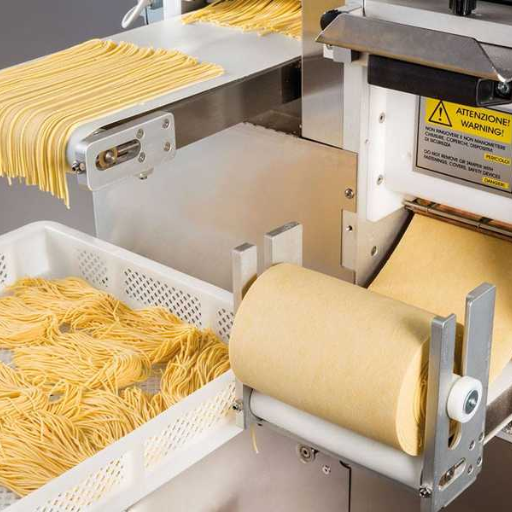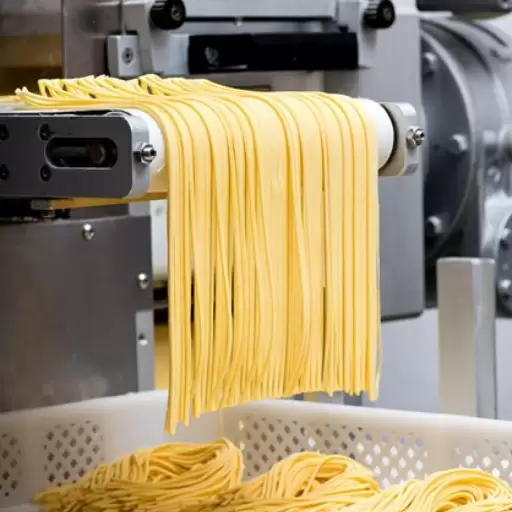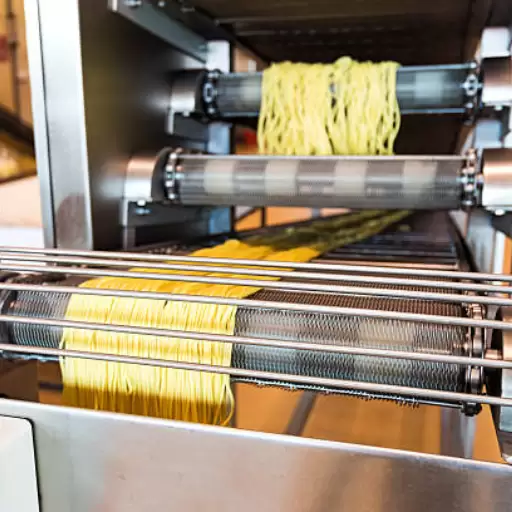In today’s global market, pasta has emerged as a staple food item, cherished by millions for its versatility, nutritional value, and delightful taste. The production of high-quality pasta is a sophisticated process that combines traditional methods with modern technological advancements. This blog aims to provide readers with an insightful overview of the top pasta manufacturing companies around the world. By highlighting their commitment to quality, innovation, and sustainability, we will explore how these companies have consistently met consumer demands and set industry standards. Whether you’re a culinary enthusiast, an industry professional, or simply curious about where your favourite pasta originates, this article will offer a comprehensive guide to the leading names in pasta production.
Who are the Top Pasta Manufacturing Companies?
Global Pasta Manufacturer General Review
The global pasta industry is home to a number of companies that have set themselves apart through quality, innovation and sustainability. For instance, Barilla Group is an Italian family business known for producing top-quality pasta and offering a huge variety of such products; therefore included in the list of the leading manufacturers. Another company, De Cecco, prides itself on being able to produce its pasta with traditional methods using superior grains. One of the major dry pasta producers in America’s is American Italian Pasta Company (AIPC). The other two players worth mentioning include Nongshim Co., Ltd from South Korea and Turkey’s Pastavilla. These firms have continued scaling up their operations so as to gain control over the market share. These organizations are known for churning out products that cater for diverse tastes worldwide all year round.
Top U.S. Pasta Makers
Some top-notch pasta producers in America have made notable contributions to the sector through commitment to quality assurance, technological intricacies as well as innovative practices. Here are some of the leading ones:
American Italian Pasta Company (AIPC)
- Quality and Innovation: AIPC has maintained its reputation by adopting advanced milling techniques and high grade durum wheat semolina.
- Production Capacity: Being one of North American largest dry paste producers, AIPC factory has several production centers located across.
- Product Range: It produces various types of noodles suited for both retail and food service markets.
Barilla America Inc.
- Heritage and Quality: Its U.S. facilities that utilize state-of-the-art technology ensure that Barilla America maintains the brand’s high-quality standards.
- Technical Parameters: In addition, it stresses on non-GMO ingredients while also subjecting its products through rigorous quality control processes thereby maintaining uniform texture as well as taste.
- Sustainability Initiatives: To achieve this goal, Barilla America prioritizes sustainable sourcing thus reducing its carbon footprint via environment friendly packaging methods among other initiatives.
TreeHouse Foods (formerly Riviana Foods)
- Product Line-Up: At TreeHouse Foods, there are a variety of private label pasta offerings that aim at making the products affordable without sacrificing their quality.
- Manufacturing Excellence: It employs high speed extrusion and drying techniques to optimize pasta cookability.
- Customer Focus: It is known for its partnership approach with retailers to come up with market tailored solutions.
Ebro Foods, Inc. (New World Pasta)
- Technical Superiority: New World Pasta, which forms part of Ebro Foods ensures quality through strict industry compliance and innovative processing methods.
- Extensive Portfolio: This includes popular brands like Ronzoni®, Creamette®, San Giorgio®, et al., covering all kinds of pastas available in the market.
Again these are some of the best pasta manufacturing firms in U.S.A. which have adapted the traditional styles along with modern technologies to meet needs of changing customers.
How Do Pasta Manufacturers Ensure High-Quality Products?
Quality Assurance in the Production of Pasta
Quality assurance in the production of pasta involves a series of activities that aim to ensure uniformity, safety and better taste. They include:
- Raw Material Selection: The process of quality control commences with choosing raw materials with care. Only high protein content and granulation quality durum wheat semolina or flour is used.
- Regular Testing: Moisture content, protein levels and ash content tests for both in process and finished product are carried out at various stages. To help maintain consistency technologies such as Near-Infrared Spectroscopy (NIR) are employed.
- Temperature and Humidity Control: Pasta should not crack or be over-dried during drying but it should have a texture as required hence optimum drying conditions are maintained. This includes temperature and humidity monitoring during drying.
- Hygiene Standards: Strict sanitation practices and hygiene protocols are followed to control against contamination. Cleanliness can be achieved through use of stainless steel equipment and regular cleaning schedules among others.
- Packaging Integrity: Packaging materials are chosen for how well they can help protect pasta from moisture and contaminants. Seal checks on each package as well as expiry dates confirm its safety.
Manufacturers who follow these strict quality control measures will produce pasta that is delicious, safe, consistently good in quality.
Certifications and Standards for Pasta Companies
In order to affirm products’ quality, safety, trustworthiness by consumers; there are several certifications/standards which pasta companies must adhere to including:
- ISO 22000: This global standard outlines the requirements for food safety management system whereby hazard analysis is undertaken through intense controls making the foodstuffs inclusive of pasta fit for human consumption.
- BRC Global Standard for Food Safety: It provides a framework that helps manage food safety, integrity, legality while enhancing the product’s quality leading to compliance with best practices within the food industry by pasta manufacturers globally.
- IFS Food Standard: The certification by International Featured Standards (IFS) for food is another significant one, which evaluates food safety and quality along the production process that emphasizes on continuous improvement and robust management systems.
- Organic Certification: For organic pasta manufacturers, USDA Organic or EU Organic certifications assure that their products are made in accordance with specific organic farming principles without the use of synthetic pesticides or fertilizers.
- Non-GMO Project Verification: This guarantees to consumers that the pasta does not contain any genetically modified organisms whereby they prefer an open label natural product.
Through these standards, pasta companies can ensure high levels of food safety and quality while also protecting their customers and building strong brand reputations.
Maintaining Uniformity in Pasta Shapes and Sizes
Consistency in pasta shapes and sizes must be preserved for both customer satisfaction as well as uniform cooking. It begins by selecting high-quality durum wheat semolina characterized with gluten strength and elasticity. Advanced extrusion technology comes into play where accurate molds as well as dies shape dough under controlled temperature together with pressure conditions. Moreover, keeping a close eye on drying is essential to avoid any deformities and guarantee evenness in texture Lastly, routine quality checks alongside complying with prescribed manufacturing procedures assure each piece of pasta dwell within consistent size and shape requirements for a dependable dining experience among consumers.
What Role Do Suppliers Play in the Pasta Manufacturing Industry?
Importance of reliable suppliers for pasta companies
A reliable supplier is the backbone of pasta manufacturing industry making all but certain that quality raw materials needed to produce premium products are available. Below are a few reasons why these suppliers are important:
- Quality Raw Materials: Consistency is what distinguishes good wheat from poor ones. For instance, semolina should have a protein content ranging from 12-15% and gluten index of between 75-90 so as to have the right elasticity and firmness.
- Consistency and Reliability: Steady supply of raw materials ensures there is no disruption in the production process. Timely delivery by such dealers supports pasta company’s production timetable, thus avoiding non-operation time and postponement in manufacture.
- Traceability and Safety: Food safety standards can be maintained if pasta makers buy from suppliers with strict adherence to safety and traceability standards like ISO 22000 or HACCP. Regular audits and certification keep track of food safety regulations.
- Innovation and Support: Collaborating with innovative suppliers who invest in research and development can lead to unique ingredients, better raw materials which finally add up to improved final product. This understanding may also come forth during new types of pasta being introduced or modified processes for their production.
- Cost Management: Long-term contracts, bulk purchase discounts, efficient supply chain management; all help controlling and stabilizing costs thereby allowing you to remain competitive in your pricing.
Durum wheat semolina’s technical parameters like protein content, gluten index, ISO 22000/HACCP adherence level, consistent delivery schedule among others are justified by their direct impact on quality control vis-a-vis continuity in pasta production. Through these parameters pasta companies become able to continuously produce high-quality products while maintaining food safety levels as well as innovating within an efficient cost management system.
Supply Chain Management in Pasta Manufacturing
Supply chain management involves coordinating several aspects that start from buying through distribution of end product during the course of pasta production. It is therefore necessary to employ effective supply chain management to enable sourcing of the best ingredients, efficient production process and safe reaching out to customers with products. This section highlights three major areas:
- Raw Material Sourcing: To produce high quality pasta, one must source for top class durum wheat semolina from known suppliers. This relationship helps in managing risks related to ingredient scarcity and price volatility.
- Efficient Production Processes: Lean manufacturing principles are adopted in order to enhance efficiency as well as reduce wastages. For instance, optimizing production workflows and regular maintenance of machines and staff training. Automation and data analytics among other advanced technologies are used to monitor processes thus boosting productivity.
- Distribution and Logistics: Reliable distribution promotes fresh delivery of pasta at the consumer’s premises within stipulated time limits. Planning transport routes, proper warehouse operations and working with logistics providers are all integral here. Properly managed logistics reduce lead times and expenses thereby increasing overall supply chain resilience.
By focusing on these areas, pasta manufacturers can maintain high standards of quality, improve operational efficiency, and ensure customer satisfaction.
What are the Different Pasta Products Offered by Leading Companies?
Pasta Varieties and Shapes That Are Popular
The major pasta producers offer a wide range of pasta products in order to cater for different consumer preferences and culinary needs. Below are some of the most common pasta varieties and shapes as well as their key technical parameters.
- Spaghetti: Spaghetti is one of the most iconic types of pastas having long, thin, cylindrical shape. It is made from durum wheat semolina which usually has a diameter typically between 1.8mm and 2.0mm. The cooking time normally varies between 8-12 minutes depending on thickness and brand.
- Fusilli: This spiral-shaped pasta is good for retaining sauces. Fusilli can be made into different sizes but with the average length before cooking being around 4 cm while its width is about 1cm. Usually it takes around 10-13 minutes to cook due to its spiral structure that ensures even cooking.
- Penne: Penne is tubular shaped with ends that are slanted making it ideal for chunky sauces; it is made of durum wheat with an average diameter ranging from 8 -10 mm across and a length approximately equaling five centimeters, then taking about11-13 minutes when cooked. Parameters may also include extrusion process that produces grooves improving sauce adherence.
- Farfalle: Also known as bow-tie or butterfly pasta, these pieces have quite distinctive shape obtained through specialized cutting and pinching procedure. They usually measure about height-wise by 2-4 cm with cooking times varying from ten-twelve minutes.
- Lasagna: These flat wide sheets of pasta are used to make layered baked dishes such as lasagne al forno in Italy. Typical dimensions measure around 7.6 x15cm each but the traditional variety calls for boiling them first between eight to ten minutes prior to assembling this dish while pre-cooked versions cut back on baking time.
- Linguine: Linguine is similar to spaghetti but flatter, around 1.5-2 mm thick, and 4mm wide. Linguine shape fits well with seafood-based sauces as it takes about 9-13 minutes to cook depending on thickness.
These varieties of pasta offered by the major companies do not only match diverse culinary applications but also guarantee high quality by means of maintaining technical parameters which are standard for consumers.
Innovative Pasta Products: Gluten-Free and Vegan Options
This has therefore led consumers to search for healthier and inclusive diets that cater to their changing dietary needs. Consequently, there has been an upsurge in demand for gluten-free and vegan pasta options from leading companies that are able to meet these requirements without compromising on taste or texture. This ensures those suffering from gluten intolerances or celiac disease can still indulge in pasta dishes due to the fact that gluten-free pastas are usually made from alternative grains such as rice, quinoa, corn etc.
Vegan pasta alternatives often include plant-based ingredients like lentils, chickpeas or spirulina thereby offering meatless options while boosting nutritional value through added protein and fiber. These innovative products are engineered to mimic the traditional pasta experience; they have similar cooking times and robust textures that cling onto sauces better. Through constant upgrading of these substitutes, producers can adapt them to a developing market niche where dietary restrictions coincide with ethical food choices.
Custom Pasta Shapes and Specialty Products
The pasta world does not mean only traditional shapes and ingredients, but leading firms are breaking new ground by creating their own unusual pasta types and specialty products to meet unique food experiences. The use of highly specialized extrusion techniques in the production process allows for custom made pasta shapes which can be perfectly matched with a desired sauce thus improving both the taste and appearance of the dishes when presented on the table. Other differentiated offerings can feature organic heirloom grains or fortified pasta such as omega-3, calcium and vitamins for better health.
In addition to that, families especially with children love fun-filled meals, hence they prefer artistic designs like animal-shaped, cartoon characters or festive holiday celebrations. These advances demonstrate a commitment by this sector towards addressing varied tastes as well as nutritional needs; therefore, ensuring that pasta remains an all round delicacy adored across different kitchens globally.
How to Choose the Right Pasta Supplier for Your Business?
Salient points to remember when choosing a pasta supplier
There are several critical factors I always consider to ensure that the best decision for my business is made while selecting a pasta supplier.
- Quality and Consistency: In evaluating any pasta, I will first consider its quality and consistency. This entails making sure that there is good texture, the sauces stick well to it and cooks consistently. More often than not, I demand for samples as well as cook tests just to ascertain that my pasta meets certain standards.
- Product Range and Customization: It is important for suppliers offering different products such as traditional ones, alternative shapes or even custom shapes. On the other hand, suppliers who can deliver special products like organic or holistic grain varieties are important to me. Indeed, the ability of shaping a customized piece of pasta through advanced extrusion methods is an added advantage.
- Certifications and Compliance: My deal with a food safety compliant supplier only. This involves checking out certifications such as ISO 22000, HACCP and non-GMO verification among many others which indicate their commitment towards high standards of safety and quality.
Technical Parameters:
- Durum Wheat Content: Durum wheat semolina is commonly suitable for golden quality pastas due to its texture and nutritional composition.
- Protein Content: I tend to choose pastas with protein contents ranging between 12% and 14% since this influences how the product will cook as well as other dietary implications associated with it.
- Extrusion Technology: According to my research bronze-die extrusion is preferable because it gives rougher texture that holds sauce better
- Supplier Reliability & Support: Supplier dependability on time deliveries, responsive customer services plus after sale supports are indispensable. In addition, I go after suppliers who have been known always carrying their promises on time by delivering orders promptly including addressing any hiccups immediately they occur at any given point in time
With these factors thoroughly evaluated, I am assured that the pasta supplier I choose will meet my specific business needs and contribute to its success.
Contracting and Negotiating with Pasta Suppliers
There are a few things that I always concentrate on when contracting or negotiating with pasta suppliers for successful partnerships. In the first place, it is important for me to ensure that there is clear communication concerning the product requirements which include quality specifications as well as delivery expectations. Furthermore, an elaborate contract stipulating all the terms and conditions must be established so that no misunderstandings occur later on. Secondly, price negotiations should be done in a manner that is open and fair while focusing on win-win situations. Regular communication through mutual respect helps build strong relationships addressing issues if they arise towards long term partnership. Lastly, performance metrics and penalties should be included in the contract to ensure accountability as well as consistent quality of pasta . By looking into these aspects I can effectively manage suppliers’ relationships thus getting the most out of them for my company’s benefit.
Reference sources
1. IMARC Group: “Largest Pasta Manufacturing Companies Worldwide”
Source: IMARC Group
Summary: This comprehensive report by IMARC Group delves into the largest pasta manufacturing companies worldwide. It highlights major players such as Barilla Holding, Nestle, and De Cecco, providing valuable insights into their market share, establishment history, and headquarters locations. The report is detailed and reliable, serving as a crucial resource for understanding the global landscape of pasta manufacturers.
2. Expert Market Research: “Top Pasta Companies”
Source: Expert Market Research
Summary: This article from Expert Market Research offers an in-depth look at the top six companies dominating the global pasta market. It includes notable names like Barilla G. and R. Fratelli SpA, Nestle SA, and F.lli De Cecco. The source is well-researched and provides critical information on each company’s market strategies, product offerings, and industry standing, making it a valuable read for those seeking to understand market leaders in pasta production.
3. Bell Italia Blog: “The 5 Most Popular Italian Pasta Brands Worldwide”
Source: Bell Italia Blog
Summary: This blog post from Bell Italia explores the five most popular Italian pasta brands worldwide, including Barilla, De Cecco, and Divella. The blog is accessible and engaging, offering insights into what makes these brands stand out in the global market. It provides context on the brands’ histories, unique selling points, and market presence, which is useful for readers interested in the cultural and quality aspects of Italian pasta brands.
Frequently Asked Questions (FAQs)
Q: Who are the top pasta manufacturers in the world?
A: Barilla, Armanino Foods and TreeHouse Foods are among the world’s best pasta makers. They have an extensive range of high-quality products and dominant market position.
Q: What makes Barilla a leading pasta manufacturer?
A: Quality, sustainability and innovation make Barilla one of the leaders in producing pasta. It is widely available across the food and beverages industry worldwide, with such types as macaroni elbows, tortellini rings or spinach noodles.
Q: How does Armanino Foods stand out in the pasta market?
A: Natural and organic pasta products, wide variety of different pastas as well as ultimate food markets tactics – thatis what distinguishes Armanino Foods from others on the market. Retailers’ highly valued premium selection aimed at both retailing and food servicing segments characterizes this company.
Q: What type of pasta products do TreeHouse Foods offer?
A: Its grocery items include wheat based pastas such as spaghetti noodles, instant egg noodles along with prepared-to-eat pastas. These are frequently purchased by customers for their quality and convenience at supermarkets.
Q: How does IMARC Group describe global pasta market?
A: The IMARC group argues that companies like Barilla use management strategies to compete on a global scale while also providing consultations on management issues within this specific field. Top 10 players such as Barilla SpA and Armanino Foods hold substantial sway over this segment.
Q: What are some of the popular pasta variants offered by leading manufacturers?
A: Leading producers provide various kinds of traditional dishes like macaroni or tortellini but also special ones including spinach noodle or ready-to-eat meals. This assortment caters for diverse tastes in terms of nutrition and diet.

